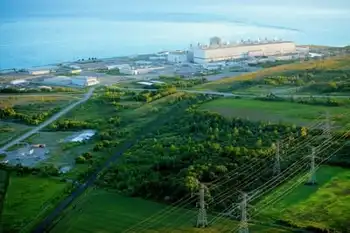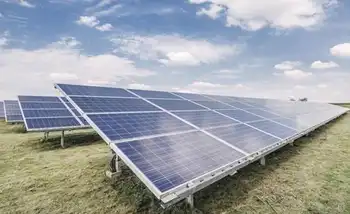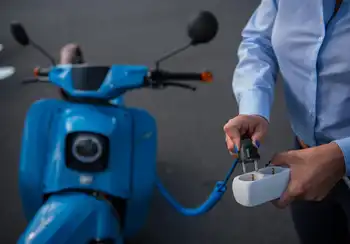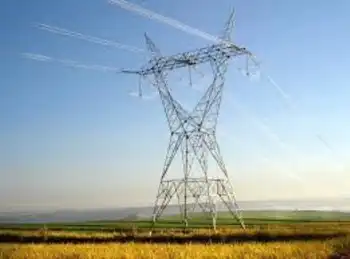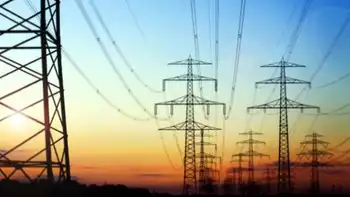Opponents square off over coal plant
By Associated Press
CSA Z463 Electrical Maintenance -
Our customized live online or in‑person group training can be delivered to your staff at your location.

- Live Online
- 6 hours Instructor-led
- Group Training Available
Canadian-based TransAlta's facility is the state's single largest source of greenhouse gas emissions, and is seen as key to state efforts to reduce global warming pollution.
Environmental groups and others pushed support for House Bill 1825, which would transition the plant off coal as early as 2015 — 10 years earlier than called for under an executive order signed by Gov. Chris Gregoire. Recognizing that timeline may have been too aggressive, however, the groups also threw their support behind a substitute House bill proposed that would push the deadline back to 2020, in line with a similar measure in the state Senate sponsored by Sen. Phil Rockefeller, D-Kitsap County.
"Most people understand that coal is dirty and dangerous. The question is really how do we transition not should we transition," said Rep. Marko Liias, D-Edmonds, prime sponsor of HB1825. He supports the substitute bill introduced by Rep. Jeff Morris, D-Mount Vernon.
Lou Florence, TransAlta's Centralia operations director, told lawmakers that the company needs to operate the facility until 2025 to protect jobs and provide enough time to bring cleaner resources on line.
Doing so by 2020 would comprise electric reliability, impose unnecessary high costs and hurt the community and work force, he said. "We support 2025," Florence said.
Gov. Chris Gregoire's executive order calls for greenhouse gas emissions at the Centralia plant to be cut in half by no later than December 31, 2025, and state officials entered formal talks with TransAlta last year to reduce its greenhouse gas emissions.
But the talks are going "slower than I want," Jay Manning, the governor's chief of staff said. "The Legislature is getting frustrated with the lack of progress and it's showing itself in these bills."
Coal-fired electric plants are a leading source of mercury pollution. Mercury can damage the human nervous system and cause learning disabilities in fetuses and young children. Such plants also emit smog-forming nitrogen oxides and sulfur dioxide, which causes acid rain and is linked to numerous respiratory ailments.
Before the hearing, several hundred TransAlta supporters including Lewis County residents, plant employees and union members, filled the steps of the Capitol to raise concerns about the proposed speedy timeline.
Among them was Patrick Conaway, whose sons held painted signs including one that read: "My dad works at TransAlta. I'm healthy."
Conaway, who works as a mechanic at the Centralia plant, said he's worried about losing a good-paying job that supports his family. "They're doing everything they can on their part," he said, noting that the company has added pollution controls. "I don't have any concerns about my children's health."
The company says it employs nearly 300 workers at the coal plant, paying average wages of about $88,000 a year. Several who spoke out against the bill worried about the loss of jobs and what it would mean to local community. TransAlta supporters talked about investments the company has made in the community.
Environmentalists said they want to ensure that the community is taken care of as the plant transitions to cleaner resources such as wind or hydroelectric power. The substitute House bill sets up a $94 million fund to help clean up the plant and pay for community redevelopment projects, and sets incremental deadlines for greenhouse gas reductions before 2020.
Nancy Hirsh, policy director with NW Energy Coalition, told lawmakers that transitioning away from coal could happen without upsetting the stability of the power grid.
"For the sake of our children's health, we need to phase out the burning of coal," said Dr. Alexander Hamling, a Seattle Children's Hospital pediatrician and a board member with Washington Physicians for Social Responsibility board member. He noted that coal pollution puts people at a higher risk for cancer as well as heart and lung disease.
LeeAnne Beres, executive director of the Earth Ministry noted that faith-based organizations in Washington and nationwide have come out to opposed coal-fired power plants. "Burning coal is a moral issue," she said.





